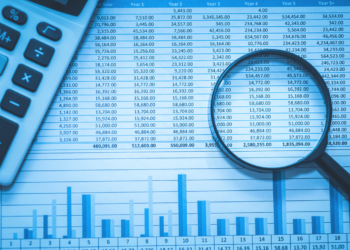Your client has been defrauded. And it’s up to you, the attorney, to prove the fraud happened and recover damages for your client. Now, the big question: How to choose a forensic accounting expert who will make sure you win.
It’s a big, daunting question. The stakes are huge, and you cannot afford to get it wrong. The good news is there are lots of CPAs out there. But the reality is that, just like attorneys, not all accountants have the same kinds of expertise. Some are great at federal taxes, some have a wealth of skill working with hospitality businesses or with doctors, and so on. But relatively few have significant experience with forensic accounting in support of litigation.
To help make the selection process more precise and effective, here are some important considerations when the time comes to bring a forensic accounting professional onto your litigation team:
EXPERT WITNESS EXPERIENCE
Fraud litigation is not only complex but can be intimidating to the initiated. Obviously, strong accounting skills are essential, but they are not enough. Your forensic accounting expert should have significant experience serving as an expert witness. If they’ve successfully withstood aggressive questioning by opposing attorneys in the past, then they should be able to handle it again on your case.
CREDENTIALS
The Certified Fraud Examiner (CFE) credential denotes proven expertise in fraud prevention, detection and deterrence. CFEs are rigorously trained to identify the warning signs and red flags that indicate evidence of fraud and fraud risk. CFEs have a unique set of skills, combining knowledge of complex financial transactions with an understanding of methods, law, and how to resolve allegations of fraud.
BROAD INVESTIGATIVE KNOW-HOW
Fraud and corporate investigations can take many paths. Often many of these paths intersect, and perpetrators generally take steps to obscure their activities. So, it is important that your forensic accountant has experience with a variety of matters, such as:
- Financial statement/management fraud
- Transaction fraud
- Tracing of assets
- Undisclosed related party transactions
- Embezzlement, kickbacks and internal theft
- Diversion of corporate opportunity
- Inventory shrinkage
- Money laundering and funds tracing
PROVEN ABILITIES IN DAMAGE QUANTIFICATION
One of the most challenging aspects of forensic accounting for litigation support is quantifying damages in the form of lost profits, diminution of value, disgorgement of profits, reasonable royalties and other measures of damage. The expert you retain should have significant experience with such assessments in a variety of settings, which could include:
- Failed acquisitions
- Earn-out disputes
- Theft of trade secrets and intellectual property disputes
- Breach of contract
- Contract termination
- Construction delay claims
- Business interruption
- Partnership disputes
- Joint venture disputes
- Audit negligence
- Class-action securities claims
ACCESS TO DEEP AND WIDE EXPERIENCE
Your forensic accounting expert should have the ability to tap into a wealth of support from other CPAs and credentialed experts locally, nationally and globally. That broad range of experiences and skills is essential to understanding the seemingly infinite ways that fraudsters can do their dirty work. The accounting professional you retain should have a substantial network of experts at their fingertips.
The bar is high for good reason. Take the time to make sure the forensic accounting expert you put on your litigation team has the analytical skills and track record you need to come out on top. You and your clients will be glad you did. Cesar Mejia










